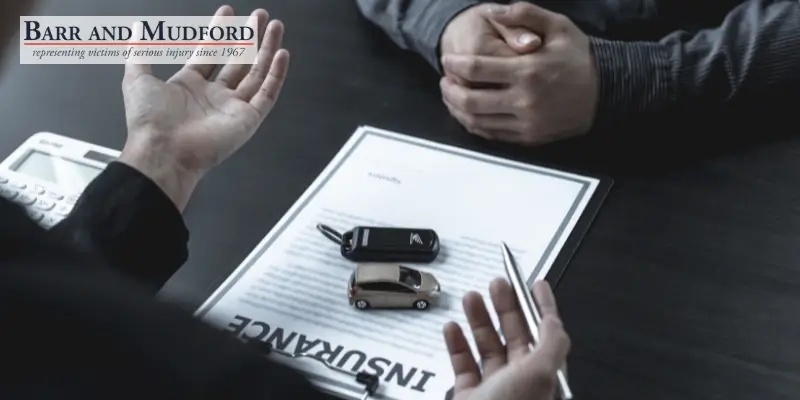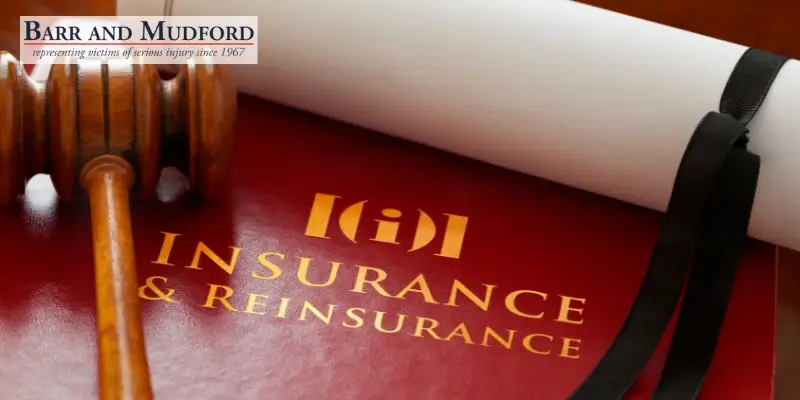California Insurance Bad Faith Law 2025 – All You Need To Know
Serving Northern California

Dealing with an insurance company should be straightforward: you pay your premiums, and when disaster strikes, they offer compensation. However, nothing in life is straightforward, and insurers prioritize profits over policyholders, utilizing underhanded tactics to delay, underpay, or deny legitimate claims. Luckily, California insurance bad faith law exists to hold these companies accountable.
Understanding Insurance Bad Faith in California
In California, insurance companies are legally obligated to act in good faith and deal fairly with policyholders. This means they must thoroughly investigate claims, process them promptly, and provide reasonable settlements. When insurers unreasonably delay, undervalue, or deny legitimate claims, they may be acting in bad faith.
With over 200,000 people injured on California roads and with one person killed every 119 minutes in a traffic accident, it’s no surprise that insurance companies engage in insurance bad faith to protect their bottom line.
Whether it is health insurance, life insurance, disability insurance, or homeowner’s insurance, bad faith practices affect them all, and with insurance companies paying out over $52 billion in damages after the Los Angeles fires, Californians need to know what to watch out for to make sure insurers aren’t trying to undervalue the losses of policyholders.

Recognizing Bad Faith Practices
Insurance companies have a legal and ethical duty to handle claims fairly, but not all insurers honor this obligation. When a company prioritizes profits over policyholders, it could engage in deceptive or unreasonable tactics to delay, underpay, or outright deny valid claims. Insurance bad faith can manifest in various ways, including:
- Unjustified claim denials.
- Delays in processing
- Inadequate settlements
- Misrepresentation of policy terms
- Failure to communicate
Recognizing these bad faith tactics is the first step toward protecting yourself from unfair treatment. When you understand what you’re facing, you can take the next step: hiring an experienced insurance bad faith lawyer who can utilize the law to get you the compensation you deserve.
Unfair Claims Settlement Practices Act
One of the most important laws protecting policyholders is the Unfair Claims Settlement Act, which defines and prohibits unfair claims settlement practices. Under this law, insurance companies must handle claims in a reasonable and timely manner. Some common violations can include:
- Misrepresenting policy terms or benefits to mislead policyholders.
- Failing to acknowledge or respond to claims promptly, leading to unnecessary delays.
- Refusing to pay claims without conducting a proper investigation.
- Offering unreasonably low settlements to pressure claimants into accepting less than they deserve.
If an insurance company engages in any of these practices, an experienced insurance bad faith lawyer can hold them accountable by utilizing this law.
The Implied Covenant of Good Faith and Fair Dealing
Every insurance contract in California includes an implied covenant of good faith and fair dealing, which is a legal obligation that requires insurers to treat policyholders fairly.
When an insurer unreasonably denies, delays, or undervalues a legitimate claim, it breaches this duty. In bad faith cases, policyholders can seek compensation not only for their original claim but also for additional damages, including emotional distress and punitive damages.
Punitive Damages for Bad Faith Conduct
If an insurance company’s bad faith actions are found to be fraudulent, oppressive, or malicious, the policyholder may be entitled to punitive damages. These damages go beyond simple reimbursement, as they’re designed to punish the insurer for misconduct and wrongdoing.
While punitive damages aren’t awarded in every case, if they apply in your case, they can significantly increase the amount you could receive.
Statute of Limitations
For a breach of contract, policyholders must act within four years to file a bad faith claim, but depending on the circumstances, the limit could be much shorter. Failing to file within the deadline can result in losing the right to seek compensation, so it’s important that you reach out to an insurance bad faith lawyer as soon as possible to preserve your right to seek compensation.
Protections Under the Fair Claims Settlement Practices Regulations
California also enforces Fair Claims Settlement Practices Regulations, which impose strict standards when it comes to how insurers must process claims. These regulations require insurers to:
- Respond to policyholder inquiries.
- Complete claim investigations.
- Provide written explanations for any claim denial.
Failure to follow these regulations can be evidence of bad faith and could result in penalties for the insurer.

FAQs About Insurance Bad Faith Law in California
Can An Insurance Company Use Social Media to Deny My Claim?
Yes, insurers often monitor social media for evidence they can use to dispute claims. If you post photos or updates that suggest you’re not as injured or affected as you claim, they may argue against paying your benefits. Even innocent posts can be misinterpreted, so it’s wise to limit public sharing while dealing with an insurance dispute.
Can I File a Bad Faith Claim If My Insurer Keeps Changing Representatives?
Yes, if your insurer repeatedly assigns new adjusters, causing delays or inconsistencies in handling your claim, this could be a tactic to frustrate you into accepting a lower settlement. Unnecessary disruptions in communication and claim processing may be evidence of bad faith, giving you grounds to take legal action against the company for unfair practices.
Can My Insurer Deny My Claim Based on an Old Pre-Existing Condition?
Insurers sometimes try to deny claims by blaming a pre-existing condition rather than the accident or event covered by the policy. However, unless your policy specifically excludes such conditions, this tactic could be considered bad faith. If the insurer can’t prove your condition is the sole reason for your loss, you may have a strong legal case.
What If My Insurance Company Blames a Third Party for Not Paying My Claim?
Some insurers try to shift responsibility to another party, like a contractor, another driver’s insurance, or even law enforcement. However, if your policy covers the situation, your insurer must handle your claim in good faith before seeking reimbursement elsewhere. If they refuse to pay because of outside factors, they may be acting in bad faith, and legal action may be necessary.
Barr and Mudford: Advocates for Fair Treatment
At Barr and Mudford, we understand the frustration and hardship that comes with dealing with insurance bad faith. Our commitment is to stand by Californians who have been wronged by their insurers, ensuring they receive the justice and compensation they deserve. Contact us today to schedule a consultation.


